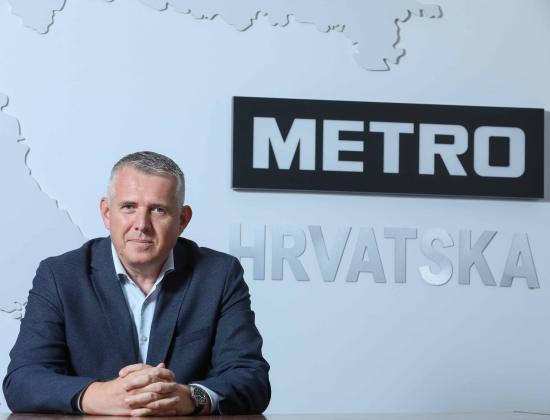JOHN LODDER: How to Innovate Performance Management in your company

In this creative and bad economy, innovation is more important than ever.
Cutting costs is necessary for the very short term but as CEO, manager or entrepreneur you also have to think about the question: What tools and resources do I have left to grow my business for the future?
Innovation is the lifeblood for every organisation in today’s fast changing markets where branding and customer loyaltyis harder to maintain. Human beings are born creative, many stay creative but in organisations employees are often not allowed to come up with their ideas for improvement. My private experiencein a Zagreb shop a month ago:‘Please send me an offer’ was not followed up, even after two phone calls, the shop did not send me an offer. As I cannot buy these products anywhere near, after a month of waiting and begging, I spent my 2500€ abroad.
This experience made me wonder about the performance of this specialised shop in particular, and about companies performances in general.Think of the long lines in the supermarket: ‘How long do you have to wait until you are finally allowed to pay for your goods?’ I now hate to go to a supermarket and that influences my spending’s, not for the positive!
How can you improve Performance Management in your company?
The performance of an employee is always the reflection of the management or leadership style. With this thought, look at your employees, they are competent and intelligent and they want to be lead, not managed. The responsibility of a leader is to create the conditions that allow great performances of their staff.
Another reason is our decreasing ability to effectively manage Performance in an unpredictable and rapidly changing business world. Growing political and financial instability, businesses and opportunities appearing and disappearing with internet speed, there is no time to wait for traditional management anymore to tell what to do.
Every CEO and every manager should make maximum use of his/her human resources; the simplest reason to do so is that you are already paying them. From a recent innovation discussion between 70 experts worldwide, six steps came out that couldhelp you to improve the quality of your people, with a huge effect on improving quality for your (potential) customers, thus, on your turnover and profit.
How to make your organisation Performance more effective and inspiring in six steps?
- 1. A deep commitment to purpose
A purpose that is clear and meaningful connects your workforce emotionally to your vision and strategy.
Give people a purpose they can believe in and where they will ‘go for’. A deep commitment to a core purpose inspires passion for the work, and passion is a significant multiplier of human effort.
A shared purpose also ensures that your staff is aligned around a common vision of the future. When everyone in your organisation understands, and is passionate about where your company is going, and they can also see their own role and the role of their colleagues in achieving this core purpose, the performance of the entire organisation will improve.
- 2. A more autonomous workforce
Too many people in organisations feel powerless to initiate change and come up with ideas.
Rigid bureaucracy and guidelines undermine the company’s capacity to renew itself and its products and services.
Performance management processes and procedures enhance the helplessness especially when goals and metrics come top-down and employees have little or no say in how to fulfil their own work.
Responsibility for managing performance should be a bottom-up activity and ensure that employees feel accountable for their own success, which is the company’s success.
Managers should not tell employees what they have to do, instead, employees should know themselves what they need to achieve and act proactively on that.
- 3. An open collaborative culture
Most organisations control information in order to control people.
Value for your company is created by employees who have the necessary information, and the permission to do the right thing for the organisation at the right moment.
Knowledge is no longer power!Although still many believe this ‘old fashioned’ idea in our digital era.
Information transparency is a key factor in your management style that creates resilience, flexibility and satisfied employees that will challenge their creativity and ideas for improving quality.
Managers who develop goals collaboratively and work toward these goals collaboratively take advantage of the power of collective actions. It is called synergy:
‘WE can do more by working together as a team, than any individual can do alone’: 1+1=3 or1+1=11.
- 4. An on-going, iterative approach to dialogue and feedback
Performance must be more than a once-a-year conversation.
Good quality and on-going Performance is more likely when it is always top of mind. Managers and employees must have regular dialogues that enable real-time adjustments, reflecting what is happening. Regular feedback from this conversation ensures that your strategies for reaching your company goals are always current and relevant.
Even more important however, these dialogues create an atmosphere of continuous improvement.
Managers will be thinking about what they can do to make employees even more effective; employees will be thinking about what they need to ensure that they and their teams are performing as well as possible.
This style of conversations about Performance is looked forward to, rather than finding excuses not to attend them.
- 5. A desire to build capabilities
To inspire a great Performance, we must nurture it, not just evaluate it.
Traditional Performance Management practices often were focused on measuring how employees are doing against a set of goals. But, how would your organisation look like if you spend as much time and energy sowing the seeds of future performance, as time and energy we spent on managing the present and the past?
Instead of obsessed looking at backward metrics, you might consider investing in your organisations’ talent. Through internal dialogue and better collaboration between groups like Finance, Marketing and HRM, companies can determine which capabilities are important for their success and how they can help employees and teams develop those capabilities even more fully.
The focus of traditional Performance Management is on the performer, looking at ‘what are you doing wrong?’ The focus should be on the manager who asks: ‘What can I, as your coach, do to help you perform better?’
- 6. A self-regulating system
The future of Performance Management will be less bureaucratic, less top-down and more bottom-up.
In many organisations Performance Management practices have become a bureaucratic mess, where time and effort costs more than the value it brings in terms of increased performance.
To get Performance off from the paper and into the companies DNA requires building a culture of Performance, where every employee feels like they play a role, their voice is heard and they can see the impact of their work.
What will be the result?
Achieving better Performance will require less bureaucratic processes because people will not feel forced to measure it, they will be thinking about their performance every day.
Authority, responsibility and decision-making should be transferred to your front-line employees, who are in direct contact with your customers. In this way they become ‘Value Centres’ for your company and serve your customers better and more sustainable.
If ‘my’ Zagreb shop would have implemented these guidelines for only 30%, their front-line employees would have been able to send me an offer within 2 days and I could have spent my 2500€ in Croatia.
How am I going to support these ideas to put them into practice?
With 4 Croatian colleagues I organise a very interactive Workshop on 7 March 2013 in Zagreb, in cooperation with our academic partner, VERN’ University for Applied Sciences.
Based on a strength based approach, we will focus on personal development that will enable participants to improve their personal and professional skills, and to increase their individual performance in your company.
For more information and for registration you are invited to go to: www.huai.hr
John Lodder M.A., MSc.
If you would appreciate more information please contact me at:
www.balance-consultancy.com
info@balance-consultany.com



























